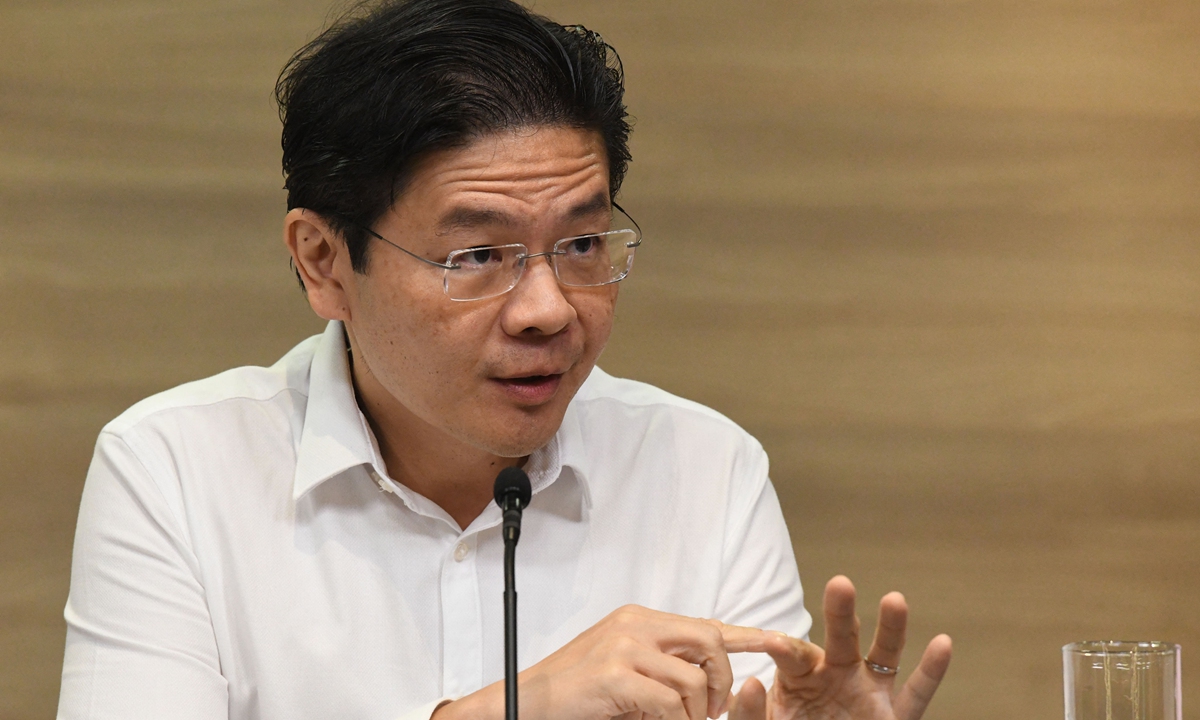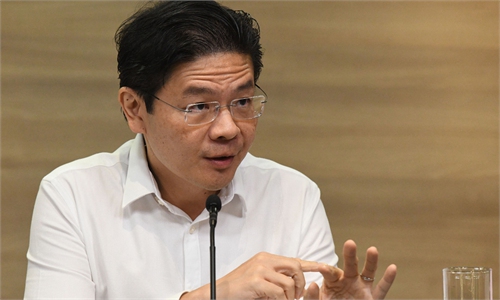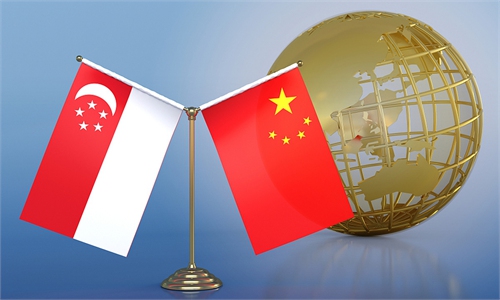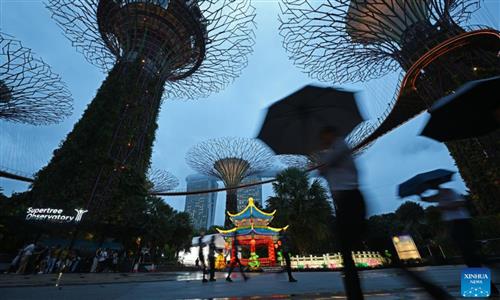
Lawrence Wong Photo: AFP
China and Singapore signed 24 memorandums of understanding on cooperation on Thursday, including a bilateral visa-free policy and a protocol to further upgrade the China-Singapore Free Trade Agreement (CSFTA), during Singaporean Deputy Prime Minister (DPM) and Minister for Finance Lawrence Wong's visit to China.
Reflecting strong demand for people-to-people exchanges, searches for Singapore in Chinese cyberspace surged, as the two countries plan to start a 30-day mutual visa exemption agreement in 2024.
Data from travel platform qunar.com showed that searches for Singapore quadrupled compared with last week, while searches for tickets to Universal Studios Singapore shot up 40 percent month-on-month.
Chinese and Singaporean analysts said deepened cooperation came out of DPM Wong's visit to China. The two countries elevated their bilateral relationship into an all-round, high-quality and future-oriented partnership in March, and these latest moves will inject fresh momentum into bilateral trade and investment ties.
"The 30-day visa waiver policy shows that Singapore understands China's commitment to further opening-up and reflects Singapore's confidence in China's economic growth and development," Zhou Shixin, a research fellow at Shanghai Institutes for International Studies, told the Global Times on Thursday.
Amid rising global uncertainty, China and Singapore have strengthened bilateral cooperation, which will provide a stabilizer for regional cooperation. Collaboration in industry and supply chains will provide more impetus and confidence for the stability of the entire regional economy, Zhou noted.
"Singapore's announcement of the mutual visa waiver arrangement is a great indication of Singapore's goodwill and sincerity in further developing close cooperation in areas such as education and tourism, and people-to-people exchanges with China," Yu Hong, senior research fellow at the East Asian Institute, National University of Singapore, told the Global Times on Thursday.
The visa exemption arrangement will promote tourism cooperation between the two countries, as well as the development of tourism-related industries such as aviation, logistics, hotels and restaurants, Yu said.
Wong is visiting China for the second time since the COVID-19 pandemic ended -- the first visit was in May.
Wong co-chaired several high-level meetings, including the 19th meeting of the China-Singapore Joint Council for Bilateral Cooperation (JCBC), with Ding Xuexiang, member of the Standing Committee of the Political Bureau of the Communist Party of China (CPC) Central Committee and Vice Premier on Thursday.
The 19th JCBC meeting reviewed the progress of bilateral cooperation in a wide range of areas, including the Belt and Road Initiative, trade, sustainability, agriculture, food security, the digital economy, smart cities, the green economy, and science and innovation, among others, according to a press release from the Prime Minister's Office of Singapore.
Ding and Wong noted the impact of global geopolitical tensions, climate change and the digital revolution on lives and livelihoods.
They told relevant officials to continue their collaboration in areas that would enhance both countries' readiness and ability to address such challenges, including agriculture and food security, renewable and marine energy, and green and digital shipping, according to the press release.
The results reached by the two sides at the meeting covered health, the environment, scientific research, green and low-carbon industries, finance, commerce, education and other fields.
Chinese experts said Singapore is an essential part of regional and global financial markets and supply chains, and a stable China-Singapore relationship will promote the economic recovery of both countries, members of ASEAN and the world.
Cooperation between China and Singapore is a "pilot project" under the framework of China-ASEAN cooperation. The strengthening exchanges will have a radiating effect to enhance China's ties with Southeast Asia and onward to other countries through the hub of Singapore, Zhou said.
Yu noted that cooperation between China and Singapore covers a wide range of areas, from traditional trade and investment collaboration to emerging sectors such as green finance, low-carbon development and the digital economy.
"I think the different areas of cooperation show a comprehensive, forward-looking relationship, as well as the breadth and depth of cooperation," Yu said.
Chinese analysts said the upgraded FTA is set to improve market access for businesses and lead to more transparent and higher-level economic rules.




